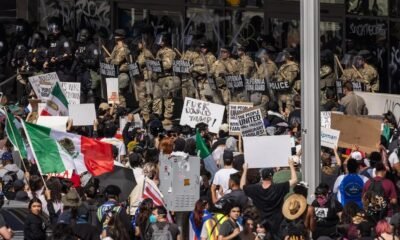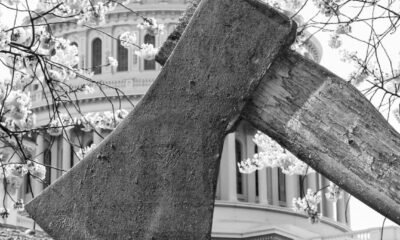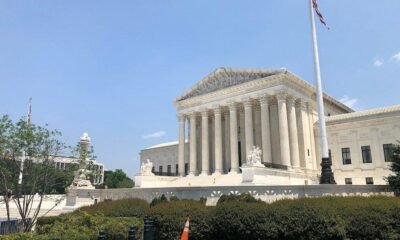ACLU
Court Rules on Tightened Timeline for Addressing Ballot Signature Concerns

Two advocacy groups are urging the Arizona Supreme Court to extend the deadline for voters facing signature discrepancies on their ballots. This extension aims to prevent potentially thousands of votes from being discarded after the current cutoff on Sunday.
Jared Keenan, representing the Arizona chapter of the American Civil Liberties Union (ACLU), explained that state law requires any signature issues to be resolved by 5 p.m. on Sunday, or else those votes will not be counted.However, he noted that counties had yet to process over 195,000 early ballots as of the last report.
While some ballots may not have signature issues, many voters have previously faced challenges. Keenan pointed out that in past elections, thousands had their votes questioned due to signature mismatches, and at the current processing rate, voters may be informed too late to address these issues.
Opposing the request for a deadline extension, Senate President Warren Petersen stated, “Follow the law. We all have to abide by the same rules,” emphasizing that this guarantees equal treatment for all candidates involved in the election.
The Supreme Court must make a decision by Sunday to provide any relief. No immediate response from the justices has been reported thus far.
In Arizona, approximately 80% of voters use early ballots, which can be mailed back and may arrive as late as Election Day. Furthermore, a significant number of voters wait until Election Day to drop off their early ballots, with over 334,000 doing so this year, including 210,039 in Maricopa County and 105,442 in Pima County.
Counties are unable to process these “late-early” ballots until live votes are tallied. Arizona law mandates that early ballots must be signed upon return, requiring election officials to compare signatures against what is available from voter registration records.
The ACLU attorneys highlighted that the law mandates county officials to make “reasonable efforts to contact the voter” when a signature is deemed inconsistent. Such efforts must be executed “as soon as practicable” and may include contacting the voter through various means based on available information.
This “curing” process typically allows voters to confirm their identity, often resolving signature issues over the phone. However, in some cases, voters may need to visit a county election office to correct their information.
According to the lawsuit, timely intervention is crucial, as highlighted by previous elections. In 2020, Maricopa County flagged around 26,000 signatures for verification issues, with about 24,000 eventually cured. The following year, 15,500 of 18,500 marked ballots were also resolved.
The attorneys emphasized the urgency of enabling voters to address signature discrepancies before they miss the Sunday deadline. Voters should not be disenfranchised due to delays in the verification process.
The lawsuit claims that delays in processing mean voters might not learn of signature mismatches until just before the deadline, making it impossible to address issues in time. Keenan added that if a county discovers a problem late Sunday, any notice provided would arrive too close to the 5 p.m. cutoff for voters to respond.
To remedy this, the lawsuit seeks a court order extending the deadline by 96 hours after a notice is sent out. If granted, this could potentially shift the response deadline to the following Friday. Alternatively, a shorter 48-hour deadline could apply if the notice was hand-delivered or sent overnight.
Keenan summarized the goal succinctly: “The most important thing is just giving folks an opportunity to cure their ballot and not have them lose that opportunity simply because they were given notice too close to the Sunday deadline or after the Sunday deadline.”


















